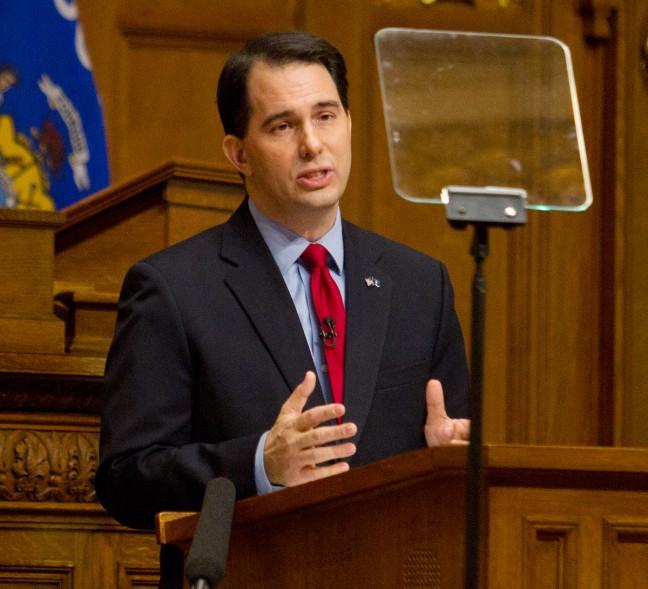I am not alone in my lengthy criticisms of our ever controversial governor. Since he took office in 2010, his budget proposals have incessantly riled up many people across the state. The name Walker inspires either revulsion or reverence. This certainly won’t change as Gov. Scott Walker competes for the GOP nomination.
Though, it is important to remember the governor’s legacy has been contingent on conservative majorities in the Assembly and State Senate. This is a crucial aspect of the Walker governorship that is insufficiently discussed. It seems that when discussing Wisconsin, whether good or bad, everything is exceedingly attributed to Walker.
As Walker speaks to conservative coalitions across the country, his position among the many GOP prospects has gained incredible momentum. Walker boasts his strong arm conservative résumé as well as his ability to implement an effective, austeric economic plan. Last year’s Marquette polls supported the notion that Walker could “get things done,” with good reason. However, it was the Republican Legislature that enabled the governor to pass his proposals so easily. He could not have taken such steadfast stands on proposals like Act 10 if he did not have this legislative support.
It is easy for anyone outside Washington to criticize it for gridlock and ineffectiveness, and Walker is no exception. However, the governor has not had to deal with gridlock. Wisconsin has been virtually always been a one-party state since his election in 2010. In his book, Unintimidated, the governor talks about checks and balances giving way to prolonged gridlock in the nation’s capital. But, Walker’s philosophy does not remedy checks and balances, rather it endorses majority dominance through any protest. However, if the Republicans in Congress can sustain their majorities, perhaps Walker won’t even need to consider an appeal to bipartisanship.
We do not know if Walker would be an effective executive in the White House. We know that given the right legislature, he will be unrelenting in pushing his far right ideology. Important questions arise when one imagines how Walker would deal with a Democratic majority in the House or (more likely) the Senate. Based off his governorship, I cannot foresee Walker willingly conceding to anything.
The Walker Administration’s refusal to compromise on policies has frustrated many. Aimlessly attacking Walker has become so familiar that it is merely a cathartic norm. It is true many of his proposals merit protest as it seems that every action the governor takes is heavily attacked.
For instance, many were outraged by Walker’s proposal to remove the reporting of sexual assaults on campuses. It was only after this initial sensation, however, that people found it was simply removing a redundancy. It parallels the conservative assault on President Barack Obama. We should not have to discuss whether the president loves his country.
Anger at Walker is reasonably justified, but it shouldn’t end with him. It should continue to the Legislature. With a presidential nomination on his mind, Walker did not want to push right-to-work legislation this early in this term. On the other hand, the Legislature must have known the governor would sign it if it appeared on his desk, so right-to-work legislation was pursued. Wisconsinites who want to moderate the ideological extremism must remember this in 2016. Unless one-party rule in the Legislature is disrupted, the left will continue to be at the mercy of a strong conservative agenda regardless of whom is governor.
Ultimately, the state elected Walker and a Republican Legislature for three consecutive elections; perhaps, they have earned the right to bulldoze an aggressive agenda through Wisconsin. For better or for worse, the state’s political atmosphere has swung completely to the right.
While it may be frustrating to see Walker propose substantial cuts to the University of Wisconsin System or the Legislature push right-to-work laws (when neither fully indicated their plans last year), these are our rightfully elected public officials. Protests are a valuable and necessary asset in political activism, but change is better achieved when that enthusiasm transfers to elections of our public representatives.
Omer Arain (oarain@wisc.edu) is a sophomore majoring in political analysis and research and economics.


